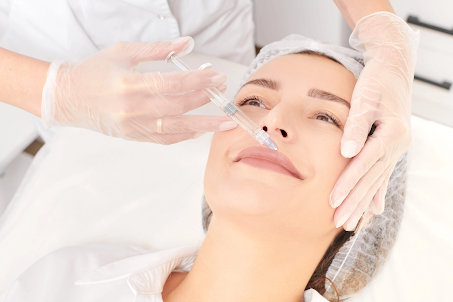Does Hydration Impact Cheek Filler Injections Outcome?
In the realm of aesthetic treatments, cheek filler injections have emerged as one of the most popular non-surgical procedures to enhance facial contours and restore youthful volume. Whether you're considering Cheek Filler Injections in Dubai or elsewhere, a commonly overlooked but critical factor that can influence the final outcome is hydration. While the role of qualified professionals and the choice of filler are often discussed, hydration status — both before and after the treatment — may significantly affect the way the filler integrates with the tissue, the longevity of results, and overall skin appearance.
Understanding Cheek Fillers:
Before exploring the role of hydration, it's essential to understand what cheek filler injections are and how they function. Cheek fillers are typically composed of hyaluronic acid (HA), a naturally occurring substance in the body that helps retain moisture and maintain skin elasticity. When injected into the cheeks, HA fillers add volume, define cheekbones, and reduce the appearance of fine lines or sagging. Because hyaluronic acid is hydrophilic (meaning it attracts and holds water), it relies heavily on the body's hydration levels to perform optimally.
Hydration Before Cheek Filler Injections
Enhancing Skin Turgor and Elasticity
Being well-hydrated before the procedure ensures that your skin is at its healthiest baseline. When skin cells are adequately hydrated, the skin’s turgor (its ability to return to normal after being pinched or stretched) improves, making it more resilient and receptive to injections. Good skin elasticity ensures that the filler distributes more evenly and integrates better within the dermal layers.
Improving Injection Accuracy
Hydrated tissues tend to have better volume and definition, making anatomical landmarks easier for practitioners to identify. This can lead to more precise placement of the filler and symmetrical outcomes. It also minimizes the risk of overfilling or underfilling, as the practitioner can better gauge the tissue response.
Minimizing Side Effects
Proper hydration can reduce the severity of common side effects like bruising and swelling. Hydrated skin has better circulation and a stronger skin barrier, helping to manage inflammation more efficiently post-injection.
Hydration After Cheek Filler Injections
Optimizing Hyaluronic Acid Performance
Hyaluronic acid acts like a sponge, absorbing water and expanding to create volume under the skin. If your body is well-hydrated after the procedure, the HA molecules can bind more water, leading to fuller, more natural-looking results. In contrast, dehydration may limit the expansion capacity of HA, resulting in a less dramatic or suboptimal enhancement.
Enhancing Healing and Recovery
Post-procedure recovery involves mild inflammation as the body adjusts to the filler. Hydration helps flush out inflammatory byproducts, supports collagen synthesis, and maintains skin barrier function. Drinking enough water can promote faster healing and improve overall skin regeneration.
Prolonging the Longevity of Results
Hydrated skin is healthier and metabolically active, which may support the longevity of filler results. Although HA fillers eventually break down and get absorbed, keeping the skin hydrated can help maintain the aesthetic benefits for a longer period.
Lifestyle Factors That Influence Hydration Status
Diet
Eating water-rich foods like cucumbers, watermelon, celery, and oranges can boost hydration. Avoiding excessive caffeine and alcohol also helps retain moisture.
Sleep
Lack of sleep can cause cellular dehydration and compromise skin integrity. Aim for 7–8 hours of sleep to allow optimal tissue recovery.
Environmental Exposure
Exposure to air conditioning, sun, and wind can dehydrate the skin. Using humidifiers and wearing protective skincare can support hydration externally.
Signs You're Not Hydrated Enough
If you're considering cheek filler injections, watch for these signs of dehydration:
-
Dry, dull, or tight skin
-
Flaky or rough skin texture
-
More visible fine lines
-
Chapped lips
-
Headaches or fatigue
Final Thoughts
Hydration may seem like a minor detail in the broader picture of facial aesthetics, but its role in influencing the results of cheek filler injections is substantial. From preparing the skin for optimal injection to enhancing the longevity and appearance of the results, water plays a vital role at every step. Especially for individuals considering Cheek Filler Injections, where environmental factors can accelerate dehydration, maintaining hydration becomes even more critical.
.jpg)



Comments
Post a Comment